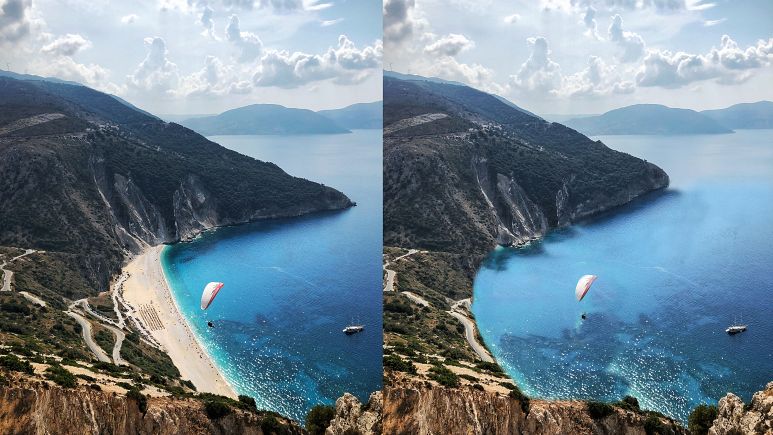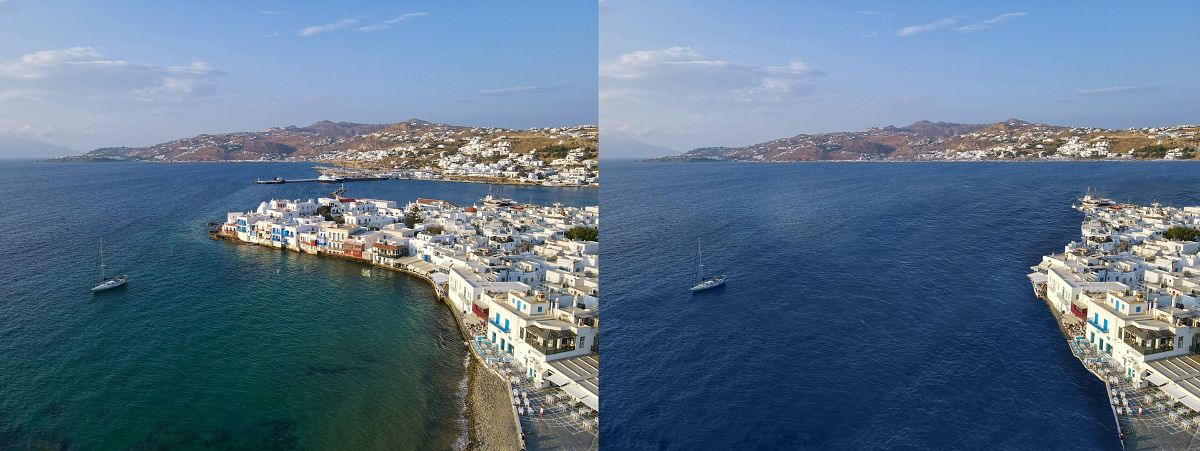Week 13: Coastal Hazards In Greece
Coastal Hazards
Greece is a major target of coastal erosion. The country lies home to over 15,000 kilometers of total coastline. As a country that features many different Islands, as well as having much of its border surrounded by the Mediterranean Sea, Greece is at major risk to coastal hazards. Greece lies home to over 15,000 kilometers of coastline.
A major issue facing Greece's coastline, is simply the fact that one-third of it is currently being lost due to erosion and rising sea levels. The major problem stems from specifically the erosion, but climate change and the rising sea levels are only speeding up the process of Greece losing its coast.

Here is a before and after image from a Greek beach called Myrtos Beach, Kefalonia. As you can see, the entire sand beach is now covered due to rising sea levels and erosion. Although erosion is a naturally occurring event, climate change is accelerating that process in Greece, at an unsustainable pace. Myrtos Beach itself is expected to fully dissapear in the future as there is only 300 meters left to be washed away. The European Space Agency monitored 900km of Greece's coastline from 1995 to 2020, in which they found that ten percent of that coastline had been receding at least 3 meters every year.
In other places like Greece's famous Island of Santorini, the coast is expected to recede up to 150 meters by the year 2100. Greece may even have to say goodbye to many tourist coastal attractions.

This image shows the coastline of Little Venice in Mykonos, Greece.
The biggest way to fight this pressing issue, is simply by building and creating a a more sustainable future for the entire world. This happens by multiple countries coming together to find the entirety of climate change as a way too postpone and prolong the natural effects of erosion, as well as many other environmental impacts that climate change has.
Along with that, Greece has other ways of protecting their coastline from erosion. Approximately 15% of the eroding coastline is artificially protected. The country has commonly used strategies like soft protection methods are beach nourishment, sediment recycling, and stabilization of coastal dunes with vegetation.
Sources:
https://www.climatechangepost.com/greece/coastal-erosion/
https://www.euronews.com/travel/2022/03/07/before-and-after-these-incredible-photos-show-how-greece-s-coast-is-disappearing#:~:text=Nearly%20one%2Dthird%20of%20Greece's,it%20at%20an%20unsustainable%20pace.
Hi Jameson, I found your blog very interesting. The visuals the photos of Greece's shrinking coastline really puts everything into perspective and is very sad! Though erosion is natural, climate change and global warming are really speeding things up. I have been learning about Japan this semester, and similarly to Greece, has a vast amount of coastline, and it suffers from many of the same issues.
ReplyDeleteHi Jameson,
ReplyDeleteWhen I think of coastal erosion, Greece is one of the first nations that comes to mind. With all the coastline and islands, its kind of a given I bet.